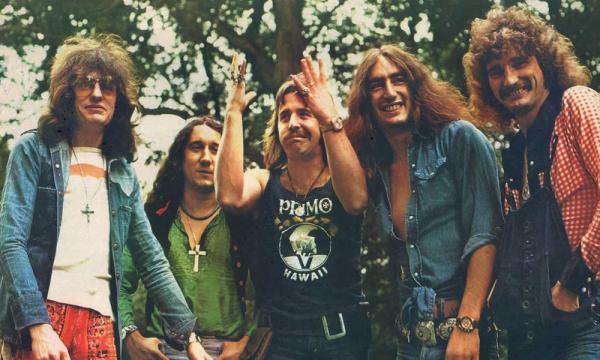INTERVIEW | Devoted fans of hard rock groups of the early 1970s will tell you that there were three undisputed kings – Led Zeppelin, Deep Purple and Black Sabbath. However, if you were asked to name the group from that era that came closest to challenging that supremacy, many would give you the same answer: Uriah Heep.
Named after a falsely ingratiating villain in a Charles Dickens novel, Uriah Heep was a hard gigging, hard living group that packed many great albums into its peak period despite a revolving door of musicians. The band’s nucleus from 1970 to 1976 was lead vocalist David Byron, guitarist Mick Box and organist Ken Hensley and, once they settled to a rhythm section of bassist Gary Thain and drummer Lee Kerslake, Uriah Heep unleashed a string of brilliant recordings.
Hit singles include Lady in Black, Easy Livin’, Stealin’, July Morning and the like, while I think the run of albums from 'Salibury' to 'The Magician’s Birthday' was touched by genius. Keyboardist Hensley, who also did the occasional lead vocal spot and played slide guitar, was the group’s main songwriter, and he soon became an idol of mine.
Hensley eventually quit Uriah Heep in 1980 and has largely focused on a solo career playing to a devoted following. After all these years, I still find his first solo album, 'Proud Words on a Dusty Shelf', to be his finest work.
Twenty years ago I interviewed Hensley via email as he was recording a religion-inspired work entitled 'A Glimpse of Glory'. He’s now 74, but still travelling the world with his unique brand of rock.
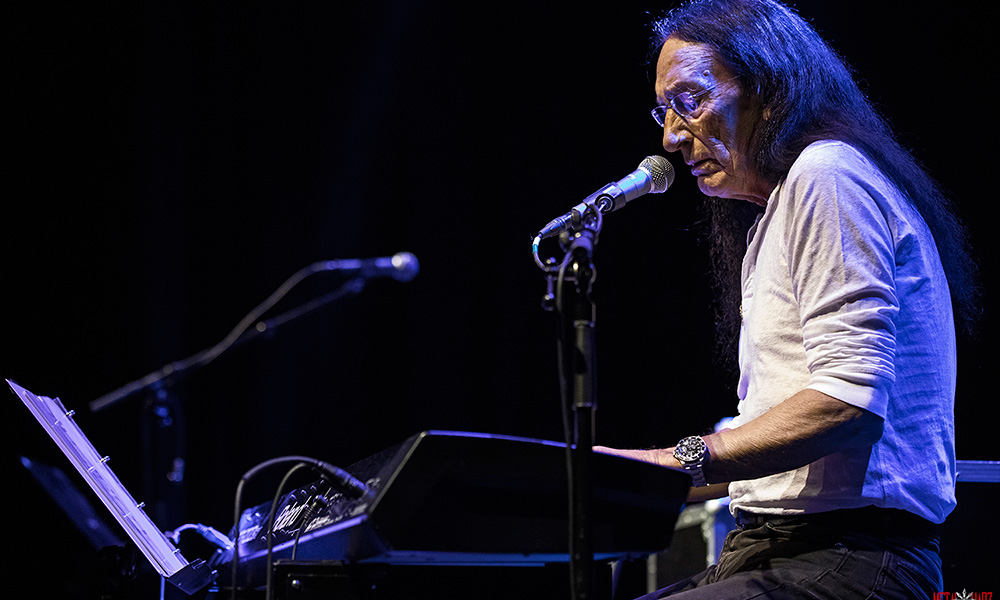
Last week Ken and I picked up the conversation where we’d left off in 1999. He’s currently working on yet another album, set for a Spring 2020 release and tentatively titled 'A Little Closer'.
“It will definitely come as a surprise to everyone, but, hopefully, a pleasant surprise,” he told me.
Hensley is also working on a musical called 'Born to Rock' and a few other projects besides.
“The musical is finished and now I am working on an adaptation of it for a rock opera. The theme fits perfectly in both environments, but the stage musical is obviously much more complicated to prepare and to present. I expect some of these options to be decided early next year, or maybe even later this year.
“Along with all of this, I am working on a really cool project with a Russian poet, a good friend of mine. The objective is to turn some of his many poems into songs and this is a really challenging project. One that I am enjoying a lot,” he said.
He is also working on a follow-up to his 2008 autobiography 'Blood on the Highway' and is also compiling his poetry into a collection called 'The Rhymes & Times of a Certain Mr H'.
“I kept all of my poetry books from the age of nine, so some of it is pretty bad, but I am happy to reveal those thoughts across so many years!”
Icon in Eastern Europe
Hensley also finds the time to do live shows with his gigging band Live Fire, which recorded a live album in Russia and is popular in Eastern Europe. He explains that this dates back to the Communist era in the 1970s and 1980s when listeners were denied the opportunity to listen to ‘decadent’ hard rock music :
“It springs from the special relationship they have to the songs. Western rock music was totally forbidden in the former Soviet Union, so their only access to it was covert.
“Once that barrier was removed they began to feast on it and, over the years, I have come to understand just how much it meant to them.
“As the author of the songs of their suppressed youth, I became a sort of hero overnight and now I enjoy every single moment with them. My experiences there have brought some incredible moments into my musical life, such as performing in The Kremlin Palace in Moscow with the Presidential Symphony Orchestra!”
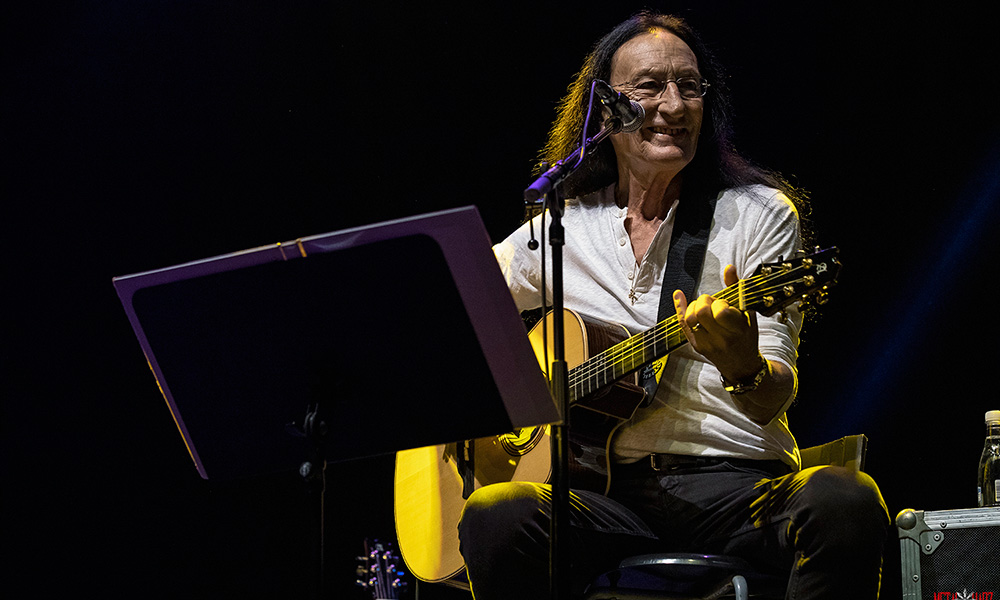
His busy schedule begs the question of how, at the ripe old age of 74, he still manages to find the energy and motivation.
“Seventy-four is nothing more than a number to me. Obviously, I learn to live with the need to take more care and I do listen to my body more carefully, but the passion, love and desire for what I do remains as strong as ever. And I have never been more creative than I am at the moment. Praise The Lord!”
I asked Ken if his religious faith was as big a part of his life as it had been when he recorded 'A Glimpse of Glory'.
“More than ever! I have come to understand The Lord´s purpose for my life and that has strengthened my faith as well as my resolve to obey His leading. And He leads me into some incredible, strange and occasionally unpredictable moments. I never worry though Martin.”
One thing that struck me about Ken Hensley’s lyrics for Uriah Heep was the occasional delving into the world of fantasy and the battle between good and evil. Nonetheless, his work was almost never overtly political. I asked if he had strong views on what was going on in the world today.
“This is a difficult question. I do take more than a passing interest in world affairs, at the same time accepting that my role in implementing change is severely limited. We live in a world where money, greed and power are the sources of common and popular lust, and I am afraid this is irreversible.
“What´s missing is a force that reminds us how to love and care for each other instead of focusing so much on ourselves. Politicians have vanished into a vacuum that, once an election has been achieved, they choose not only to ignore their constituents, but also to discard the empty promises they made to get them into power. Evil clearly rules here.
“I could say a lot more on this, but let me just say that I know this will come to an end one day. It will no doubt be apocalyptic, the level of which will be decided by a power much higher than the idiots can even imagine.
“Actually, Martin (and don´t ask me how), my current view is neatly summed up in a song I wrote in 1971 called 'Secret'. It´s on the 'Eager To Please' album.
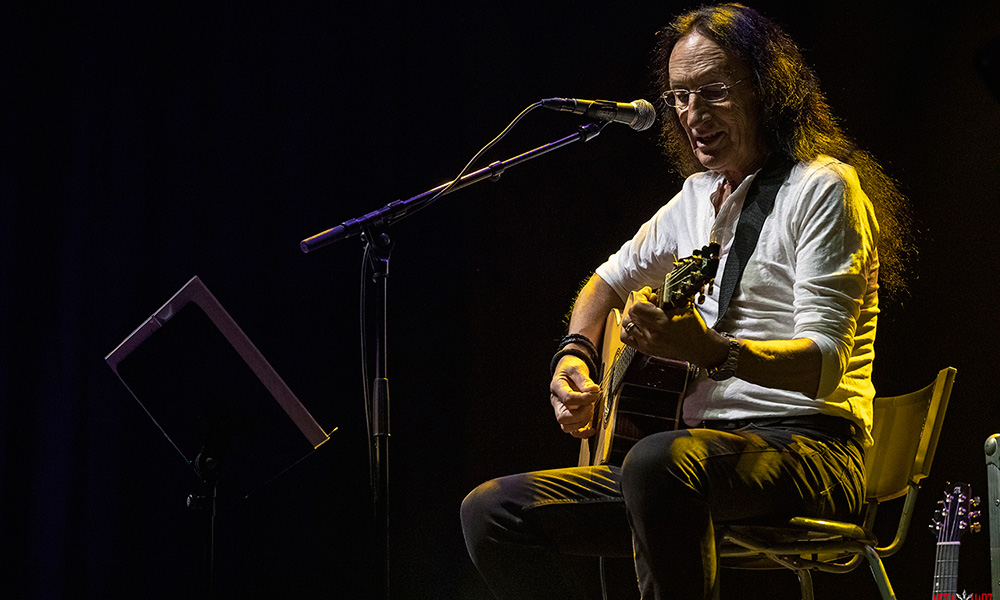
When Hensley first began his recording career with The Gods in the mid-1960s, the music world was very different. Technology has evolved a lot and has played a part in keeping his legacy alive. But he does think that the evolution of recording, of formats like YouTube and Spotify, isn’t totally for the better.
“I made my first two albums on four-track tape machines at Abbey Road, so I have seen (and had to live with) the incredible technological revolutions that seem to occur daily now. Much of this has been positive, but it has had its distinct downside too.
“For example, I love the way that an MP3 file enables me to transport new music to my musicians, producers, publishers and whomever, but I lament the fact this medium has now become the norm to internet listeners when, by its very nature, it compresses and obscures almost 80 percent of the available audio information.
“My wife and I enjoy using YouTube to explore historic music, but the pervasive stature of these media is beyond my logic, so I won´t waste my time trying to change it!”
London native Hensley has lived in the US and is currently based in Spain where he lives with his wife Monica.
“I am a citizen of The world! I 'live' in Spain and there are many things I enjoy about that, but Monica and I worked hard in the early years to create our own little 'bubble' here, so, with just a little imagination, we can be anywhere we want to be."
Hensley has no children and when I asked what his family thought of his rock music career he said: “My brothers and my sister love me and what I do in their own, very British way, but I was and always will be the black sheep!”
Heep in its pomp
The special chemistry in Uriah Heep that began when bassist Gary Thain and drummer Lee Kerslake joined Box, Byron and Hensley is still talked about adoringly. I asked what Ken’s memories were of that incredible period.
“It would take volumes to recount all that. It was such a magical time and we were living every aspiring rock star´s dream. We were making progress through Europe and we thought that was pretty cool, but then we went to the US for the first time in 1971 and everything exploded! Our first show was at Indianapolis Fairgrounds and we were opening for Three Dog Night who were #1 in America at the time.
“We didn´t know what to expect, but what we experienced that night was more than we could have imagined. When we arrived for a sound check, we were speechless. In the UK a 'fairground' is an open-air place with lots of rides and stuff, but this was a 16,000-seat, indoor arena. We had never played a venue bigger than 300 or 400 people.
“For the first time, we saw the absolute excess of success there, the limousines, the groupies, the tour buses and, finally a totally sold-out arena. It was incredible and it was the start of bigger things to come. Soon, this would all become ours."
Sadly, time has brought the loss of many people. Thain and Byron passed away quite early on, as did Hensley’s former flatmate Paul Kossoff of Free. I asked Ken what he would like to say to those who have gone.
“Gary was a big loss to the band because he was so much a part of the 'chemistry' that makes a successful band tick, but I suppose I miss David the most because he was the man who brought my songs to life and he did it in a way that I can´t describe. In a strange way, I still think of him when I am writing or recording a new song. All so tragic and, in many cases, so unnecessary.”
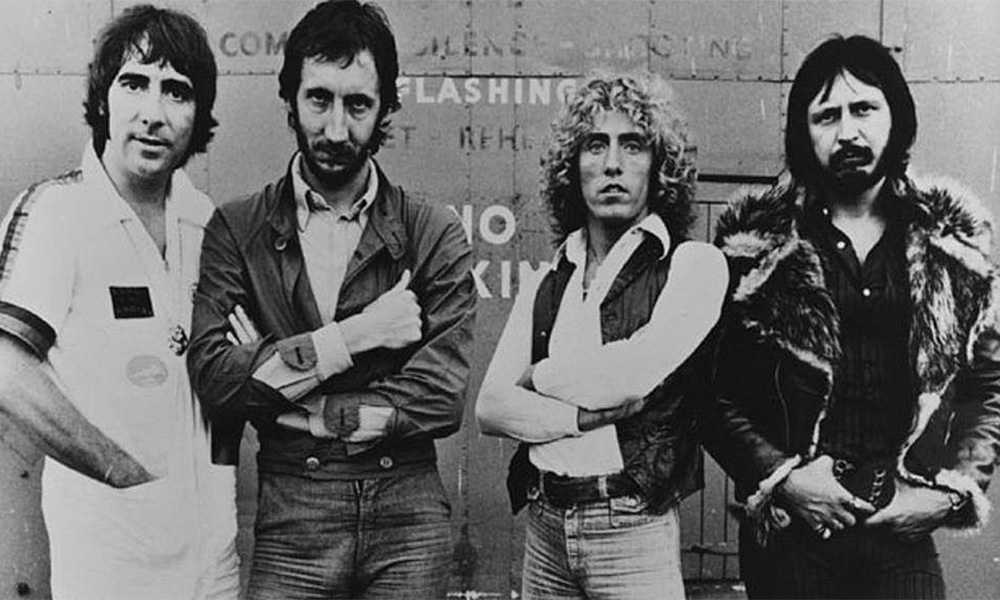
Ken said that Elvis Presley and The Beatles were idols while growing up, while he also admired contemporaries like the original Moody Blues (with Denny Laine), Deep Purple, The Who (above), Bob Dylan, Led Zeppelin and many others.
However he’s not so enamoured of musical acts on the scene now: “They all sound the same to me and that´s because they are the product of the music machine that the industry, in its greed, has become."
As a fan of classic rock/progressive rock keyboard playing, I had to ask what Hensley, a widely-respected Hammond player, thought of the likes of Jon Lord, Keith Emerson, Tony Banks and Rick Wakeman.
“Ha! They are all such great players, and I am just a humble guy who mainly uses keyboards as a writing tool. I took up the organ because I couldn´t get a job as a guitarist, but I never bothered to learn how to play properly, just how to squeeze the right emotion from the instrument. I guess that makes me a little bit different huh?!
“I loved Jon! He used to call me ¨dear boy¨. I got bored with Keith always quoting classics, but Rick... now there´s a genius! It always amused me when fan polls put me in the same top Five as those guys!”
Despite penning so many songs that are staples of the classic rock era, Hensley is not a larger than life celebrity. Yet, all over the world, there are people who adore his music and grew up with it. How does that impact upon him?
“It wasn´t until after Heep, when I had time to breathe, that I began to understand the impact my songs were having on people in faraway places such as Malaysia, Russia and other countries I had never visited. In the early days, I never imagined I would be doing an interview like this, with someone like you in a country like Malaysia.
“But I am so thankful for all of this,” he said, expressing the hope that one day his life long musical journey would take him to these shores.
“Thanks from deep in my heart and I hope I get to meet you and play for you soon,” said Ken.
MARTIN VENGADESAN is a member of the Malaysiakini team.

